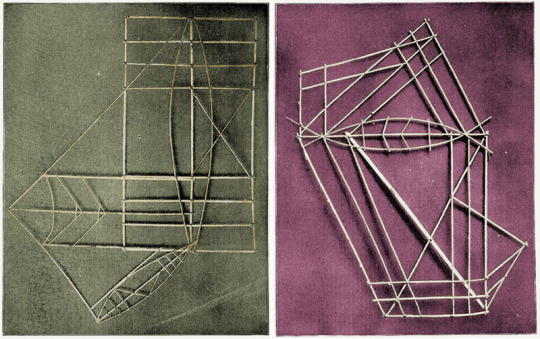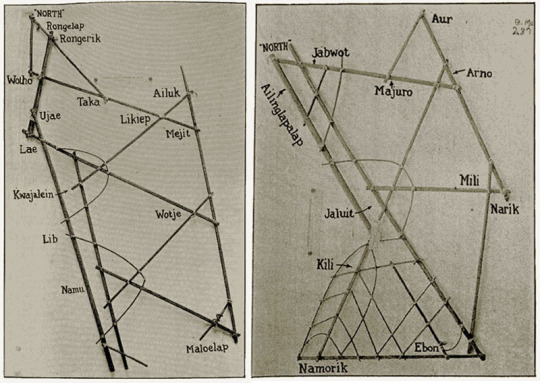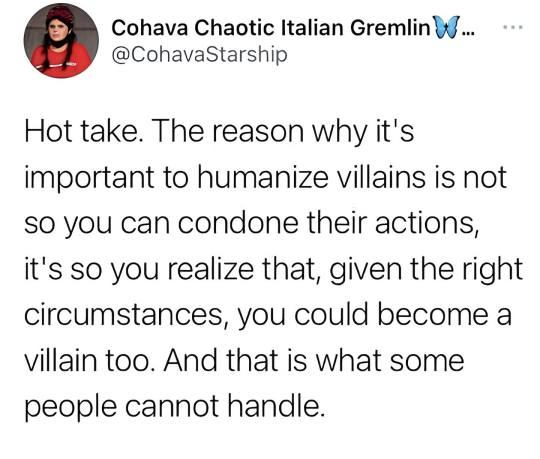Nate | Writer | 20s | all is well that ends well, but all is well that ends
Don't wanna be here? Send us removal request.
Text
Not expalining WHY bookburning is bad and WHAT books were targeted has left us with Bookworm uwu girlies treating any art project or act involving destorying/modifying any random ass mass printed novel as if it was a crime against humanity
43K notes
·
View notes
Photo

yellow, the colour of sunshiny days and a lot of joy
my photography, please don’t remove caption or alter credits.
519 notes
·
View notes
Text
I feel like ODD being an official disorder in the DSM should be the thing that makes everyone go “hm” about how psychology is practiced
63K notes
·
View notes
Text

Polynesians did also rely on a form of a physical map called a stick chart, illustrating the specific wave and swell patterns surrounding different island chains. These were particularly helpful during cloudy conditions when the sun and stars were less useful. To navigate the Marshall Islands, the Marshallese represented ocean swell patterns using parts of coconut fronds and shells as islands. Like a subway map, they don’t so much represent distances as they do relationships. The complex and decorative stick charts were often only understood by the person who made them. They were memorised before a voyage by the pilot who would lie on the floor of a canoe to get a sense of swell movement and often lead a squadron of 15 or more boats.


40K notes
·
View notes
Text
"[Interviewer:] There's this one line delivery you have that was so haunting, when adult Owen is buying the new flat screen: “I have a family now. I love them.”
[Smith:] That line is crazy, especially because I'm a shell of myself walking in and then I'm smiling at the camera and then I'm actively being a shell of myself. It was interesting how much we played a lot with who narrator Owen was, versus real Owen.
So in these moments where Owen is experiencing something in the scene, and then he turns to camera—who is that person? Because that person exists in this weird liminal space of reality. The whole movie exists in a liminal space of reality."
(from this interview with justice smith)
608 notes
·
View notes
Text
i'm not invested in "harry potter was never good" conversations because it doesn't matter if it's good or not. quality does not positively correlate with socio-political praxis. it could be a really good piece of art, but if it's still supporting a vocal proponent of transmisogyny and transphobia, i don't give a shit. harry potter good or bad, who cares, its success is unambiguiously providing financial and social capital for a morally despicable person.
18K notes
·
View notes
Text
This post reminded me to pay my rent

It's the last day of April
32K notes
·
View notes
Text
like we really hate to hear this - but power is in every human relationship. unless you are the exact same as your partner in age, class, race, ethnicity, religion, language, nationality, citizenship status, gender, sexual orientation, physical and mental ability, salary, education, etc, you have to negotiate the problems material power differentials pose to love, to treating others well. the response to this seems to have been to make certain points of difference - like age - load-bearing, in a way that erases others - class would be my example: far bigger a power disparity than, say, a ten year gap in age between adults is class and inheritable wealth, but you almost never see that acknowledged in the same way. and even if you were at parity in all those areas (gay twincest sweep??) there is still the emotional power that someone’s love and desire for you gives you over them. you can’t get rid of it. you cannot find the perfect relationship where it doesn’t exist by steadily winnowing down your “ethical” options via widening designations of “problematic relationships.” you have to confront the power you have over other people and think how you will wield it most lightly. sorry!
7K notes
·
View notes
Text
babe I found the perfect house for us. it's going for $200,000 under assessment value and the owner said he'd throw in the doll collection in the attic
81 notes
·
View notes
Text
it is absolutely essential to have friends you can have extremely insane pervert conversations with. this is kind of what makes life worth living
47K notes
·
View notes
Photo

Church San Giovanni Battista, Mario Botta, 1996
851 notes
·
View notes
Text

Group statue of Thoth-ibis and devotee on a base inscribed for Padihorsiese
Late Period
ca. 700–500 B.C.
396 notes
·
View notes
Text
Two sisters lived in a fragrant house. The older sister Ahana worried that a drought might come, but the younger sister Leela was happy to spend all day in the house.
“Stop looking for something to complain about!” Leela chided Ahana. “The rain will provide for us!”
But Ahana began to dig a well. It was bitter work. Each morning, Ahana woke before the sunrise, and Leela slept peacefully until noon.
After the first month, Ahana cried, “You lie here all morning like a lazy dog! Come dig the well with me!” And so Leela and Ahana both woke before the next sunrise.
But the work was very bitter.
“The rain will provide,” Leela said after digging for six hours.
“Then go home,” Ahana replied, so Leela returned to the fragrant house. She boiled rice and chicken; she mixed it with salt, turmeric, and parsley. Ahana returned after dark and saw a bowl of food waiting for her. Leela was already asleep: she had gone to bed before the sunset.
Ahana took a blanket and draped it over her sleeping sister.
After the second month, Ahana thought to herself, “Why should I continue to dig the well alone?” So she said to her sister, “Come dig the well with me tomorrow.”
The next day, Ahana woke before sunrise, and Leela woke when the sky turned blue. Leela joined her sister, but the work was very bitter.
“The rain will provide,” Leela said after digging for an hour, so she returned to the fragrant house.
Ahana returned after dark. She found a bowl of rice waiting for her, but it had been left out since noon. The food was very cold.
After the third month, Ahana said, “Come dig the well with me tomorrow,” but Leela stayed home.
After the fourth month, Ahana said, “Come dig the well with me,” but Leela did not look at her. So Leela went to bed long before the sun had set, and Ahana dug long after dark.
While Ahana was gone, Leela grew very hungry, so she ate both portions of the food.
After the fifth month, Ahana completed the well. She went home and slept until sunset.
After the sixth month, the rain stopped. Leela said, “Let me drink from your well, or I will surely die,” but Ahana said, “Why should I let you drink from a well that you did not dig? And what good is your rice now that you cannot boil it?”
After the seventh month, Leela died, and Ahana inherited her rice. Ahana grew very rich. She sold rice and charged neighbors to drink from her well. Rice was so scarce that people would sell their houses just for a single bag. Ahana bought herself golden dishes rimmed with jewels; gems and diamonds from every continent; fine dresses of every color; cool, refreshing lakes, and wide open fields.
But her house was no longer fragrant. She realized Leela must have been burning incense to keep the house smelling nice. Ahana only noticed now that her sister was gone.
The waters of the well were still deep even when Ahana’s hair turned grey, and her joints creaked as she moved. Her memory was like a small cloud in a great storm: tossed about, torn up, and pushed away by the winds of her age. She lost things that she needed. She saw things that weren’t there.
Ahana walked to the well in confusion. She saw a drowning woman in the well, and she thought to herself in terror, “My sister cannot swim!”
Ahana jumped into the well to save her sister, but she could not find Leela.
There was only the waters of the deep.
And so, Ahana drowned trying to save her own reflection.
~ ~ ~ ~ ~ ~ ~ ~ ~ ~ ~ ~ ~ ~ ~ ~ ~ ~ ~ ~ ~ ~ ~ ~ ~ ~ ~ ~ ~ ~ ~ ~ ~ ~ ~ ~ ~ ~ ~ ~ ~ ~
Two sisters were married to the same merchant.
They had grown up in another house beside another field. The older sister was Asha and the younger sister was Labuki. The drought had passed and there was plenty in the land.
When they were children, Labuki asked, “Where has your well gone?”
But Asha dismissed it, thinking to herself, My sister is a infant. She does not know that what she says is nonsense. She doesn’t understand that I do not have a well. Their mother married both girls to a merchant to secure contracts. Their family would make a fortune selling rice through his trade caravans.
Asha was his first wife, but he loved her younger sister more. He lavished Labuki with gifts and servants, jewels and perfumes, while Asha lived in a separate house on his property. Nevertheless, Asha was an ambitious woman.
“Surely, if I give my husband a son, he will look on me with favor,” Asha said to herself. But when Asha laid with him she produced a daughter, and she cursed her child for being a girl. Even as she fed the baby, she whispered, “I don’t want you, I don’t want you.”
Labuki laid with the merchant and produced a son.
Asha laid with the merchant again and produced another daughter.
Labuki laid with the merchant again and produced another son.
Asha laid with the merchant again and produced another daughter.
Labuki laid with the merchant again and died in childbirth.
“You are my wife now,” said the merchant. “I give you power over your sister’s sons.”
Asha looked at the sleeping boys, who could not yet understand that their mother was dead. She could send them off into the woods alone. Her daughters would be the sole inheritor of the merchant’s wealth, and Asha would be the sole mother of his children.
“They are my sister’s babies,” said Asha. “They will live here with us.”
Her nephews grew up calling her ‘Mother,’ and she never corrected them. It felt like a lie. Her daughters grew up calling her ‘Mother,’ and that felt like a lie, too.
You can read the rest of this story for free here on my AO3 for original fiction.
731 notes
·
View notes
Text
i have rule i semi-adhere to for media criticism which is to ideologically meet shit where it's at (or where it's presented to me). i like to call it the "i didn't make you market it that way" rule--like, if lancer's union was just presented as a sci-fi setting, that would be fine. i don't expect all sci-fi settings to be communist utopias! but when the creators of lancer use the word utopia like 20 times & bandy around words like 'mutual aid' and 'post-scarcity' and 'anticapitalist' when describing it, then to me that becomes absolutely fair game. similarly if someone says 'stardew valley is fun i like farming :)' then i'm not gonna reply with a long post about how it's ideologically petty-bourgeois--but if they say 'stardew valley is anticapitalist', then they've opened up that can of worms and it's fair for me to point out that the worms exist.
28K notes
·
View notes
Note
please elaborate on ghosts as pollution
If you leave a corpse in a river and it fucks up the river, that's pollution. If you leave a soul in a doll so it fucks up a house, that's pollution. Human waste product that requires proper ecological reintegration. Simple as.
9K notes
·
View notes

